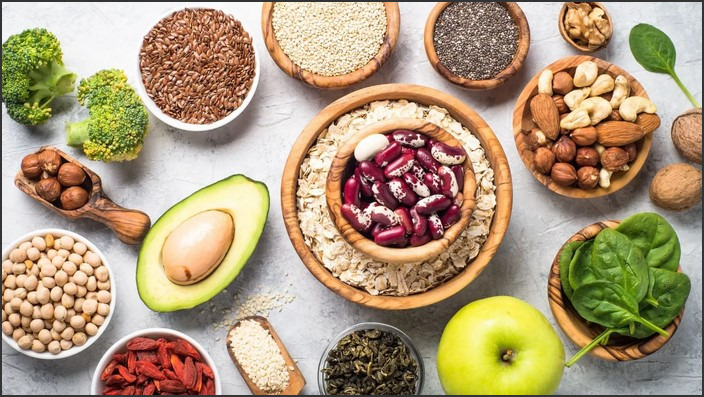Tag Archives: oxalates and kidney stones
Oxalates and Kidney Stones: Dietary Considerations for Kidney Health

Source : https://inkidney.com
Oxalates are naturally occurring compounds found in many foods, including fruits, vegetables, nuts, and grains. They are also produced by the body and can be found in urine. High levels of oxalates in the body can lead to the formation of kidney stones, which can cause pain and other complications. Therefore, it is important to be aware of dietary considerations for kidney health, such as limiting oxalate-rich foods and increasing intake of fluids. This article will discuss the role of oxalates in kidney stone formation, as well as dietary strategies to reduce the risk of kidney stones.
How Oxalates Can Contribute to Kidney Stones: A Guide to Dietary Considerations
Kidney stones are a common and painful condition that can be caused by a variety of factors. One of these factors is the presence of oxalates in the diet. Oxalates are naturally occurring compounds found in many foods, and when consumed in excess, they can contribute to the formation of kidney stones. This guide will provide an overview of oxalates and their role in kidney stone formation, as well as dietary considerations for those at risk of developing kidney stones.
Oxalates are compounds found in many plant-based foods, including spinach, rhubarb, beets, nuts, and chocolate. They are also found in some fruits and vegetables, such as strawberries, raspberries, and potatoes. Oxalates are not absorbed by the body, but instead are broken down in the digestive tract and excreted in the urine. When oxalates are present in the urine in high concentrations, they can bind with calcium to form calcium oxalate crystals, which can then form kidney stones.
Those at risk of developing kidney stones should be aware of the foods that are high in oxalates and limit their intake. Foods that are particularly high in oxalates include spinach, rhubarb, beets, nuts, chocolate, strawberries, raspberries, and potatoes. It is also important to note that some foods, such as tea and coffee, contain oxalates but are not considered to be high in oxalates.
In addition to limiting the intake of high-oxalate foods, it is also important to increase the intake of foods that are high in calcium, such as dairy products, leafy greens, and fortified cereals. Calcium binds with oxalates in the digestive tract, preventing them from being absorbed and excreted in the urine. Increasing the intake of calcium-rich foods can help reduce the risk of kidney stone formation.
Finally, it is important to stay hydrated by drinking plenty of water throughout the day. Adequate hydration helps to dilute the concentration of oxalates in the urine, reducing the risk of kidney stone formation.
By following these dietary considerations, those at risk of developing kidney stones can reduce their risk of developing this painful condition. It is important to speak with a healthcare professional for more information and personalized advice.
The Role of Oxalates in Kidney Stones: What You Need to Know About Dietary Choices
Kidney stones are a common and painful condition that affects millions of people each year. While there are many potential causes of kidney stones, one of the most common is the presence of oxalates in the diet. Understanding the role of oxalates in kidney stones and making informed dietary choices can help reduce the risk of developing this painful condition.
Oxalates are naturally occurring compounds found in many foods, including fruits, vegetables, nuts, and grains. They are also produced by the body as a byproduct of metabolism. When oxalates are consumed in excess, they can accumulate in the kidneys and form crystals that can eventually become kidney stones.
The most common dietary sources of oxalates are spinach, rhubarb, beets, nuts, chocolate, tea, and wheat bran. Eating these foods in moderation can help reduce the risk of developing kidney stones. Additionally, it is important to drink plenty of fluids to help flush out any excess oxalates from the body.
In addition to dietary changes, there are other steps that can be taken to reduce the risk of developing kidney stones. Limiting the intake of salt and animal proteins can help reduce the amount of calcium in the urine, which can reduce the risk of forming oxalate crystals. Additionally, maintaining a healthy weight and exercising regularly can help reduce the risk of developing kidney stones.
Making informed dietary choices and taking steps to reduce the risk of developing kidney stones can help reduce the pain and discomfort associated with this condition. By understanding the role of oxalates in kidney stones, individuals can make informed decisions about their dietary choices and take steps to reduce their risk of developing this painful condition.
Conclusion
In conclusion, oxalates can be a contributing factor to the formation of kidney stones. Therefore, it is important to be mindful of dietary choices that are high in oxalates and to consider reducing or avoiding these foods to help reduce the risk of kidney stones. Additionally, it is important to stay hydrated and to consume adequate amounts of calcium to help reduce the risk of kidney stones. By making healthy dietary choices and staying hydrated, individuals can help reduce their risk of developing kidney stones.





